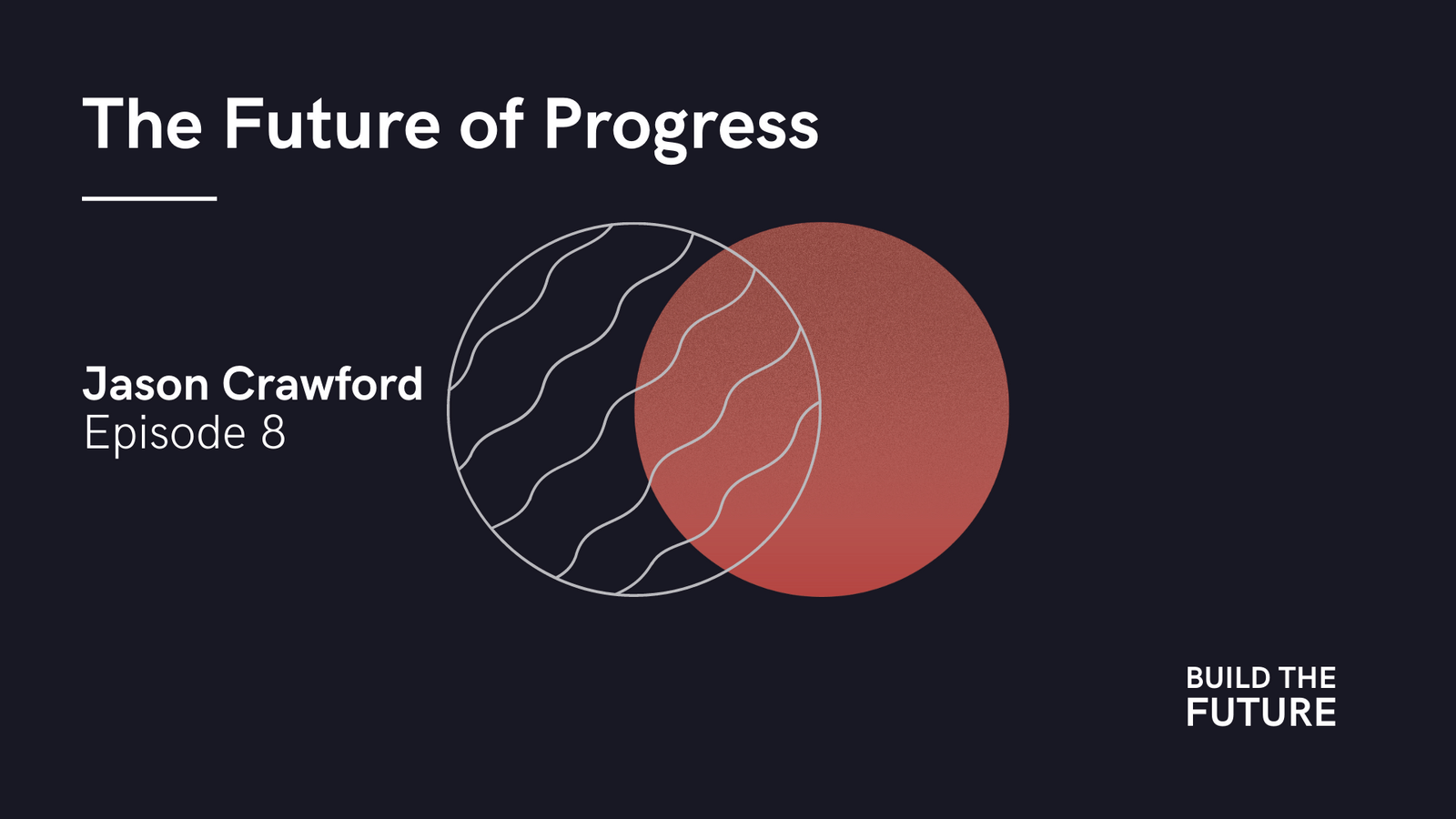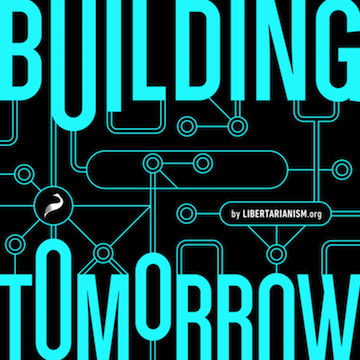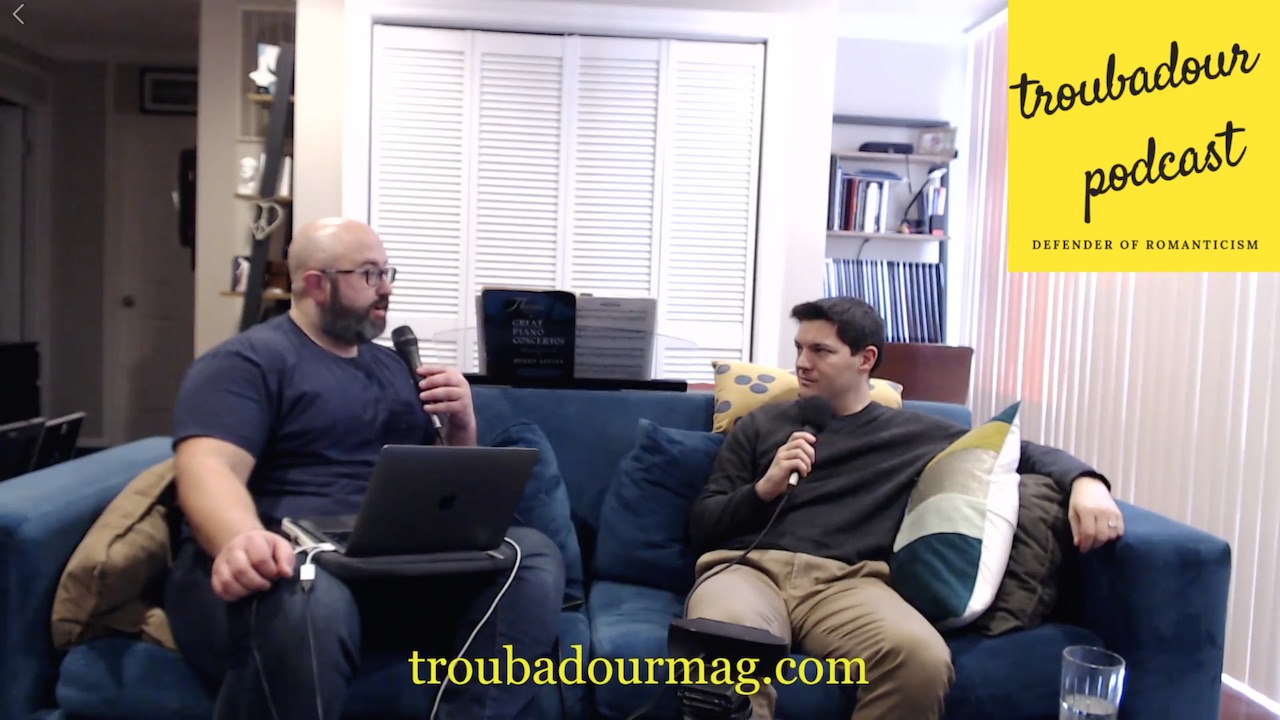Speaking
Here are interviews and talks I’ve given. (See also two interview series I hosted: The Torch of Progress and “Doing Better”.)
Featured interviews and talks:
Vox
The discipline of ‘progress studies’ wants to figure out what drives discoveries and inventions so we can supercharge human flourishing
The progress studies movement is very small — mostly a handful of bloggers and researchers — but it’s one of the more intriguing intellectual movements out there. One of its leading figures is Jason Crawford, the author of a blog called The Roots of Progress that explores the history of important inventions and discoveries…. I sat down with Crawford to talk about what progress is, what the progress studies movement brings to the table, and what he thinks is missing from our national conversation about inventions, discoveries, and the societies that succeed at encouraging them.
BBC
Do We Need a Better Understanding of ‘Progress’?
A growing and influential intellectual movement aims to understand why human progress happens—and how to speed it up
Ultimately, the progress community wants its followers to believe that they can do better. Multiple sources paraphrased the slogan “a better world is possible” in our discussions. For Crawford, the vision of that world animates him: “I want humanity to regain its self-esteem and its ambition, to figuratively and literally reach for the stars. I want us to dream of flying cars, fusion energy, nanotech manufacturing, terraforming planets, exploring the galaxy. So it’s not just about policy, but about people’s fundamental attitudes towards humanity and our place in nature.”
The Energy of Tomorrow: The Promise, Failure, and Possible Rebirth of Nuclear Power
In the 1950s, nuclear power was seen as the energy of the future. Today, it is stagnating on the sidelines, providing only 10% of world electricity, with no fundamental advance in reactor design for several decades. Why did this technology seem so incredibly promising, how did it go so badly wrong, and is there hope for a nuclear renaissance?
Lessons from the Wright Brothers
How the Wright brothers invented the airplane, and lessons for inventors and founders today: passion, iteration, first-principles thinking, and choosing the right time to launch.
Foresight Institute
In the 1960s, people looked forward to a “Jetsons” future of flying cars, robots, and nuclear power; today they at best hope to stave off disasters such as pandemics and climate change. What happened to the idea of progress?
Titans of Nuclear
“I think it’s this whole thicket of… the combination of the regulations, the utility companies and the way the entire utility market is structured, the nuclear companies themselves, and then the social substrate of this very anti-nuclear attitude in society. It’s all of those things working together to create this very complex problem.”
Ignite Long Now
Humanity has had a pretty good run so far. In the last two hundred years, world GDP per capita has increased by almost fourteen times. But “past performance may not be indicative of future results.” Can growth continue?
All interviews and talks, in reverse chronological order (most recent at the top):
The Glamour of Tomorrow
Virginia Postrel · November 26, 2025 · 1 hour, 30 minutes
An Interintellect salon I hosted, in conversation with Virginia Postrel, based on her essay “The World of Tomorrow.”
d/acc: The First 150 Years
d/acc Day · March 13, 2025 · 8 minutes
I spoke at “d/acc Day” alongside Vitalik Buterin, Juan Benet, Mary Lou Jepsen, Allison Duettmann, and others. “d/acc is Vitalik Buterin’s approach to technology acceleration, emphasizing the development of defensive technologies and the distribution of power to avoid its concentration in a singular elite.”
My talk was a whirlwind tour of how society has thought about progress, decentralization and defense over the last century and a half.
Riskgaming
Danny Crichton · August 15, 2024 · 39 minutes

As founder and leader of the Roots of Progress Institute and through his on-going publication of The Techno-Humanist Manifesto, Jason emphasizes that we have lost something important: our industrial literacy. America’s leaders no longer understand how prosperity was delivered from the Industrial Revolution onwards, and we’ve lost the ability to rebuild and expand wealth in its broadest conception for the next generation.
I talk with Jason about his manifesto and its focus on humanism, and then we walk through some of the major ideas he’s hoping Americans pick up. These range from more progress studies in high schools and colleges as well as a greater understanding about the value that technology delivers for quality of life to the importance of gratitude for our ancestors who delivered this prosperity to us and why technocrats and reactionaries can both be wrong about managing technological change.
Progress: An Ever-Evolving Journey
Foresight Institute · December 29, 2023 · 48 minutes
An interview with Foresight for their Existential Hope library.
Jason envisages a future marked by dynamic, continuous progress, encapsulated in the concept of protopia. This vision diverges from a traditional notion of a utopia, and instead embraces a reality of constant, incremental improvement. In Jason’s view, progress is a journey, not a destination. It’s a series of small, significant steps that, over time, lead to profound transformations in our world.
Central to Jason’s perspective is the transformative potential of AI, paralleling historical technological leaps like the steam engine and personal computing. He views AI as a catalyst for a new era in human history, one that could redefine societal structures by making high-quality services accessible to a broader demographic. This democratization of resources, akin to services becoming as affordable as a Netflix subscription, could bridge societal gaps. However, Jason emphasizes that this protopian future requires collective agency, responsibility, and a balanced understanding of our role in shaping it. He believes that progress accelerates over time, with each innovation building upon the last, thus speeding up future advancements.
Pessimism or progress: What did you see in 2023?
Marshall Ingwerson, Christian Science Monitor · December 22, 2023
A 2023 year-in-review piece in which I am briefly quoted:
… 2023 was the year millions of people first used a generative AI program (such as ChatGPT), the next great platform for economic productivity. Though too soon to assess its impact, AI has the potential to become as powerful a change agent as the internal combustion engine, mass manufacturing, electricity, and computing itself, says Jason Crawford, a technology historian and founder of The Roots of Progress. “In the most extreme scenario, which I still think is pretty speculative but not impossible, it is the next big thing in human history – after agriculture and the Industrial Revolution.”
Toward a New Philosophy of Progress
Instituto Millenium · November 21, 2023 · 1 hour, 4 minutes
This is a talk I’ve given before. This recording has subtitles in Portuguese for what that’s worth. The question period begins about 31 minutes in.
Giuliano Giacaglia
October 20, 2023 · 1 hour, 8 minutes
Topics included stagnation, how progress happens, progress in energy, nuclear energy, progress in agriculture, and where inventions are created.
I think what really made me come around to this point of view is studying the history of progress and basically deciding that it’s not about bits versus atoms. It’s about the fact that we’ve had progress in only bits when we really should have had progress in both bits and atoms at the same time bits, atoms, cells and joules…
We actually can make progress on all fronts at once. And the proof of this is really the late 19th and early 20th century. In the 50 years from 1870 to 1920, just to pick a relatively arbitrary time period, we had, by my count, approximately five major revolutions or big breakthroughs on five fronts.
Timestamps:
Luminary.fm
Erik Cederwall and Sachin Gandhi · October 9, 2023 · 1 hour, 2 minutes
Our conversation with Jason centers around progress and the history of technology. We cover the relationship between human civilization and technology, assorted inventions, and lessons to consider in the development and implementation of future technologies. We also talk about why progress matters, how things went wrong in the 20th century, and Jason’s idea of a new philosophy of progress. Jason has encyclopedic knowledge of diverse topics which made this an especially rich conversation.
Future of Life Institute Podcast
Gus Docker · July 21, 2023 · 1 hour, 26 minutes
The history of progress, the future of economic growth, and the relationship between progress and risks from AI:
- 00:00 Eras of human progress
- 06:47 Flywheels of progress
- 17:56 Main causes of progress
- 21:01 Progress and risk
- 32:49 Safety as part of progress
- 45:20 Slowing down specific technologies?
- 52:29 Four lenses on AI risk
- 58:48 Analogies causing disagreement
- 1:00:54 Solutionism about AI
- 1:10:43 Insurance, subsidies, and bug bounties for AI risk
- 1:13:24 How is AI different from other technologies?
- 1:15:54 Future scenarios of economic growth
Breakthrough Science Summit panel
July 1, 2023 · 59 minutes
Former Prime Movers Lab Futurist Ramez Naam moderates a panel with The Roots of Progress Founder Jason Crawford, Idea Machines Host Ben Reinhardt, and Prime Movers Lab Venture Partner Amy Kruse to discuss the fundamental research that the US needs to invest in and how it will impact the economy.
The conversation is an excerpt from the Prime Movers Lab Breakthrough Science Summit hosted in Scottsdale, Arizona on October 27th, 2022.
Infinite Loops
Jim O’Shaughnessy · May 25, 2023 · 1 hour, 29 minutes
Whether humans deserve progress, how to make progress cool, the two types of optimism, and more.
Contents:
- 00:00:00 Intro
- 00:01:21 Main podcast
- 00:02:07 Why do we need progress studies?
- 00:06:44 Are humans conditioned to resist progress?
- 00:18:45 Increasing the burden of safety
- 00:26:49 What the Roots of Progress is seeking to achieve
- 00:35:19 How can we make progress cool?
- 00:40:46 Pessimism of the intellect, optimism of the will
- 00:52:44 Do we deserve progress?
- 00:54:38 Progress & politics
- 01:08:02 Steelmanning the case against progress
- 01:15:02 How can we defend against bad actors?
- 01:21:43 Calibrating our approach to risk
Also on Apple Podcasts, Spotify, and other links on the show page
Learning Night
Bill Mei · May 11, 2023 · 21 minutes
An intro to progress studies for Learning Night Boston. (Poor audio quality, sorry.) Why study progress, and why do we need a new philosophy of progress? Plus a few minutes of Q&A.
Hub Dialogues
Sean Speer · April 11, 2023 · 40 minutes
An excerpt:
… when the counterculture arose especially around the ’60s, I think what happened was a lot of people looked at that and they looked at these very techno-optimist folks, who were also very authoritarian. And they rejected the authoritarianism, and they also rejected the notion that we even wanted progress. They said, “If this is progress, if this is what progress consists of, if it consists of individuals losing autonomy, then we don’t want the authoritarianism and we don’t want the progress, let’s just throw all of it out.” There was this false dichotomy between technological and industrial progress, on the one hand, and individualism and autonomy on the other hand. One of the great tragedies of the 20th century is that things were set up that way, such that if you wanted to push back against authoritarianism, you were pushing back against progress as well.
Audio and transcript on the show page
The Post
Elle Griffin · March 7, 2023 · 32 minutes
Video plus transcript: “the history, present, and future of work and leisure…. how work has changed over the last 200 years, the decline in working hours and the rise of leisure hours, the shift from blue-collar to white-collar work, the dream of liking what you do, how much we work today, and where we go from here.”
The topics are similar to “Why didn’t we get the four-hour workday?,” but here’s an excerpt with something different:
I have to admit, I’ve never 100% understood what “consumerism” is, or what it’s supposed to be. I have the general sense of what people are gesturing at, but it feels like a fake term to me. We’ve always been consumers, every living organism is a consumer. Humans, just like all animals, have always been consumers. It’s just that, the way it used to be, we didn’t consume very much. Now we’re more productive, we produce more, we consume more, we’re just doing the same thing, only more and better….
The term consumerism gets used as if consumption is something bad. I can understand that, people can get too caught up in things in consumption that doesn’t really matter. But I feel like that’s such a tiny portion. If you want to tell the story of the last 100, 200 years, people getting wrapped up in consumption that doesn’t really matter is such a tiny fraction of the story…. Compared to all of the consumption that really does matter and made people’s lives so much better. I’m hesitant to even acknowledge or use the term. I’m a little skeptical of any use of the concept of consumerism….
Any consumption that actually buys us something that we care about, even convenience, or saving small amounts of time, is not a waste. It’s used to generate value that is not wasted. It is spent on making our lives better. Are some of those things frivolous? Certainly, but what’s the matter with frivolous uses? Tiny conveniences add up. They accumulate over time to be something that is actually really substantial. When you accumulate little 1% and 0.5% improvements and time savings, before you know it you’ve you’ve saved half of your time. You’ve doubled the amount of resources that you now have as an individual to go for the things that you really want and care about.
Toward a New Philosophy of Progress
TOS-Con 2022 · March 6, 2023 · 59 minutes
A talk I gave in June 2022, basically a spoken version of my article “We need a new philosophy of progress”:
Enlightenment thinkers were tremendously optimistic about the potential for human progress—not only in science and technology but also in morality and society. This optimism lasted through the 19th century, but in the 20th century, after the World Wars, it gave way to fear, skepticism, and distrust. Now, in the 21st century, this outlook is worsening. We need a new way forward: a new philosophy of progress. What events and ideas challenged human progress? How can we put it back on a sound foundation? And how can we establish a positive, ambitious vision for the future?
Live from the Table
Noam Dworman · February 24, 2023 · 58 minutes
“In this episode, we talk self-driving cars, Amazon and the endless possibilities of AI.”
Yaron Brook Show
February 9, 2023 · 1 hour, 57 minutes
A live interview with audience questions.
Outline:
- 02:35 What do we mean by progress?
- 04:38 Slow progress/regression in history
- 09:27 What’s happened in the last fifty years?
- 11:29 Moral progress (and lack thereof)
- 17:59 Belief in progress in the early 20th century
- 25:00 Tech industry of the late 20th century
- 29:50 Nuclear energy and optimism for the future
- 40:08 Philosophy of progress
- 49:40 The Roots of Progress and the progress movement
- 55:48 Freedom, reason, and progress
- 1:01:11 Law and safety regulation vs. insurance
Live questions:
- 1:08:35 Is it a sign of moral progress that we no longer glorify violence?
- 1:10:23 How do you see Progress Studies reversing the progress slowdown?
- 1:12:18 Response to Marc Andreessen’s “It’s Time to Build”
- 1:15:05 President Carter and deregulation
- 1:16:44 Who’s your favorite builder?
- 1:18:10 How common are Objectivists in tech?
- 1:20:14 Will you develop curricula for teaching about progress?
- 1:22:54 How long before there is a curriculum to teach the history of progress?
- 1:25:16 History of power grids in the US?
- 1:29:30 Mel Brooks’s “History of the World Part 2”
- 1:29:56 Are you sure humans aren’t born with any instincts?
- 1:32:15 How to have conversations about progress with people
- 1:35:08 A series of ARU lectures on “Luminaries of the Enlightenment”?
- 1:35:53 Can primitive technology be shown to people to put things into perspective?
- 1:38:22 What to do if you are frustrated by bureaucracy and are tempted to hold back your potential?
- 1:42:23 How do you gauge moral progress?
- 1:43:16 What about the government monopolization of education as a cause of stagnation?
- 1:43:57 Thoughts on Monsanto?
- 1:44:25 Progress vs. progressivism?
- 1:45:23 Tips for burned out parents? Thoughts on Bitcoin, tech layoffs, China?
- 1:49:10 How patient should I be with people before I block them?
- 1:50:06 In an Objectivist world would sporting events that went to the death be allowed?
- 1:50:39 Are Democrats or Republicans more receptive to your ideas?
- 1:51:36 Is the progress movement part of Effective Altruism?
- 1:52:11 What can one do to help the progress movement?
- 1:53:23 Is the anti-vax movement scary for progress?
- 1:55:52 Thoughts on progress in psychology?
- 1:56:39 Outro
Remember the Past to Build the Future
Foresight Institute's Vision Weekend 2022 · January 7, 2023 · 29 minutes
Progress has become invisible: the infrastructure that makes our way of life possible is mostly hidden; the problems that industrial civilization has solved are now forgotten. To have a bold vision of the future we need to remember the past and understand the present. (Bad audio quality, sorry.)
Build for Tomorrow
Jason Feifer · December 29, 2022 · 47 minutes
This episode is about what people in 1923 thought about the year 2023:
… there was one, one prediction, one prediction that absolutely dominated the conversation, one prediction from one man that led to a national debate, and that prediction was this. In the year 2023, electricity will have made the world so efficient and so prosperous that people will only need to work four hours a day.
I’m one of two guests, discussing how this did and didn’t come true and why. Podcast links and transcript on the show page.
Alex Labossiere
October 25, 2022 · 40 minutes
On optimism, progress in technology, drivers of stagnation, and how to think about innovation.
Here’s a teaser, about William Crookes and his “alarmism” about the fertilizer crisis (which I covered in depth in the MIT Tech Review). Show page, Apple podcasts.
Arjun Khemani
October 14, 2022 · 38 minutes
We talk about the need to study progress, tackle the question of whether progress makes humans any happier, optimism and solutionism, and some more.
Timestamps:
- 0:38 Why we need a new philosophy of progress
- 3:54 “Almost nothing about progress is linear…”
- 9:56 Why bother making any progress in the first place?
- 11:56 Should we “go against nature”?
- 18:01 Does progress make us happy? Are we on an intergenerational hedonic treadmill?
- 27:52 Optimism and solutionism
- 35:15 What’s your message for people living a thousand years from now?
Foresight Institute
Allison Duettmann · September 20, 2022 · 1 hour
Recording of a meetup in San Francisco where I spoke on why we need a new philosophy of progress and took questions from Allison and the audience. This was the event description:
Why We Need a New Philosophy of Progress
The paradox of our age is that we enjoy the highest living standards that have ever existed, thanks to modern technology and industrial civilization—and yet each new technology and industrial advance is met with skepticism, distrust, and fear. In the 1960s, people looked forward to a “Jetsons” future of flying cars, robots, and nuclear power; today they at best hope to stave off disasters such as pandemics and climate change. What happened to the idea of progress? How do we regain our sense of agency? And how do we move forward, in the 21st century and beyond?
Pod of Jake
September 1, 2022 · 45 minutes
Jake and I talked about:
- My early tech career (starting with programming at age 11)
- Why I dropped out of high school
- Our expansion and CEO search
- What intellectual work is needed in progress studies
- Scientific vs. romantic environmentalism
- The massive impact of electricity on the economy
Transcript on the show page. Listen on Apple, Spotify, YouTube, etc.
Philosophy of Education
Matt Bateman · July 27, 2022 · 1 hour, 5 minutes
A conversation about industrial literacy and the pedagogy of progress, by the folks who commissioned my high-school progress course. Show page, Apple, Spotify. (Recorded November 2021, but published more recently.)
Faster, Please! the Podcast
James Pethokoukis · July 14, 2022 · 27 minutes
Listen on Substack. Topics included:
- How I got interested in progress
- Why “stuff” is underrated… but also why progress is more than just “stuff”
- Do we still not know how progress happens?
- Against utopianism
- Is risk/safety a blind spot for the progress community?
- Is progress a capitalist, democratic philosophy? Are there pro-progress socialists?
- If things haven’t gotten better in 10 years, what went wrong?
Bretton Goods
Pradyumna Shyama Prasad · June 19, 2022 · 48 minutes
Topics included:
- Building a culture of economic progress
- Why are developed countries more averse to progress?
- Is there a tradeoff between economic progress and existential risk?
- What is the main constraint for the movement today?
Plugged In
Alex Stevens · June 15, 2022 · 54 minutes
A discussion about the conditions that have contributed to human flourishing and the role that energy has played in shaping human society. Topics included nuclear power, long-term economic growth, and why pessimism sounds smart.
BBC Future
Garrison Lovely · June 15, 2022
“Do we need a better understanding of ‘progress’? A growing and influential intellectual movement aims to understand why human progress happens—and how to speed it up.”
I was interviewed, along with Tyler Cowen, Holden Karnofsky, and others. It’s well-researched and, although somewhat critical, it is pretty fair in how it represents the progress community.
One of the closing paragraphs:
Ultimately, the progress community wants its followers to believe that they can do better. Multiple sources paraphrased the slogan “a better world is possible” in our discussions. For Crawford, the vision of that world animates him: “I want humanity to regain its self-esteem and its ambition, to figuratively and literally reach for the stars. I want us to dream of flying cars, fusion energy, nanotech manufacturing, terraforming planets, exploring the galaxy. So it’s not just about policy, but about people’s fundamental attitudes towards humanity and our place in nature.”
Ignite Long Now
Brady Forrest · June 10, 2022 · 5 minutes
I gave a five-minute talk on economic growth for Ignite Long Now 2022. It’s a simplified and very condensed treatment of a complex topic. See also the transcript.
Automation, Productivity, Work, and the Future
Erik Brynjolfsson · May 25, 2022 · 2 hours
I was the host for this one, with economist and author Erik Brynjolfsson as my guest for an Interintellect SuperSalon. Topics included:
- Opportunities for productivity improvements through AI
- The productivity slowdown and its causes
- The transitions needed to adapt to a new general-purpose technology; his “J-curve” theory
- How automation affects employment and unemployment
Hear this Idea
Fin Moorhouse and Luca Righetti · May 12, 2022 · 1 hour, 50 minutes
In our conversation, we discuss:
- What progress is, and why it matters (maybe more than you think)
- How to think about resource constraints — why they are sometimes both real and surmountable
- The ‘low-hanging fruit’ explanation for stagnation, and prospects for speeding up innovation
- Tradeoffs between progress and (existential) safety
- Differences between the Progress Studies and Effective Altruism communities
What Could Go Right?
Zachary Karabell and Emma Varvaloucas · March 30, 2022 · 52 minutes
I think there’s a broader story to tell there too, about the universalization of rights, giving rights to all race and sexes; more broadly the cosmopolitan attitude of seeing ourselves as part of one human race, rather than split into tribes and nations where we think very locally and parochially.
So I think there’s definitely a great story to be told here. That kind of moral and social progress, I see as one of three major strands of progress. If you want to understand the overall story of human progress in the broadest sense, you need to look at, one, material progress in technology, industry and wealth; two, progress in science, knowledge and education; and three, that kind of moral, social and governmental progress. And I think the three of them together are the major strands in the story. And they’re intertwined and interdependent.
Flies in the Ointment
Dima Shamoun · March 10, 2022 · 47 minutes
A discussion on nuclear energy, ALARA, LNT, and safety. Inspired by my book review and talk.
Discourse Magazine
Adam Thierer · March 2, 2022
A brief written interview, some excerpts:
People love their iPhones, and they make Elon Musk into a celebrity for building rockets to Mars. But they also worry that fossil fuels are destroying the climate, that robots will take all the jobs and that social media will cause the downfall of democracy.
I do think the most powerful thing we can do for the long term is to teach the history of progress to young people. The story is so fascinating, and the facts of how living standards have improved are so powerful—from agricultural abundance to vaccines and antibiotics to indoor plumbing to the internet—that if properly told, it should outweigh any counternarrative.
I tend to think that America will continue to lead the world for the foreseeable future—but I’m less certain about that than I was in 2015 or even in 2019.
Where We Go Next
Michael Callahan · February 15, 2022 · 1 hour, 12 minutes
How exactly am I able to communicate with you? We’re not in the same room - we’re likely not even in the same state. And if my listener stats are accurate - 30% of you reading this right now live in a completely different country! So… how did we get here? What makes the world modern - technologically, socially, morally - is often under-appreciated, but the history of the modern world is a history of progress. The Roots of Progress founder Jason Crawford believes that understanding that history is key to empowering the next generation to progress ever further.
Austin Next
Jason & Michael Scharf · February 8, 2022 · 37 minutes
For Austin to solidify its role as the next great innovation powerhouse, we must research what has come before and what are the trends pushing us forward. One area of study that greatly affects our future is the exploration of the very nature of progress itself … what is it, what drives it, and how it affects our region’s future. We spoke with Jason Crawford, Founder and CEO of the Roots of Progress, a nonprofit dedicated to establishing a new philosophy of progress.
Listen on the show page or on Apple Podcasts.
L'actualité
Marc-André Sabourin · February 2, 2022
“Le bien-être de l’humanité passe par le progrès” (“The well-being of humanity depends on progress”). A written interview in the French-language Canadian magazine L’actualité. (We did the original interview in English and it was then written up in French.) An excerpt, run through Google Translate:
Why do we, who lead such comfortable lives in North America, need more progress? Shouldn’t we focus on redistributing what already exists?
The distribution or diffusion of a technology to all parts of the world is a form of progress. That said, you cannot redistribute what has not yet been produced or invented. 200 years ago, people already felt comfortable. Yet most lived in what is now considered extreme poverty. For a long time, only the rich could afford inventions such as running water, toilets or refrigerators. Nowadays, they seem to us basic necessities to which even the poorest must have access. But I don’t believe that a poor person’s standard of living is sufficient because he has a refrigerator, in the same way that I don’t believe that a rich person’s standard of living is sufficient because he can travel. in the space. I want everyone’s standard of living, rich and poor, to be better in the future. Otherwise, we will not have done for future generations what previous generations have done for us.
Better Future
Bolek Kerous · January 28, 2022 · 33 minutes
Recorded at the Foresight Institute’s Vision Weekend conference. Topics & timestamps:
- 00:00 - Intro
- 01:00 - Progress studies & foresight - history & future
- 02:33 - Highlights from Foresight Vision Weekend
- 03:32 - Ambitious Foresight visions, sci-fi coming true
- 05:22 - Existential hope and agency to be solutionist
- 07:30 - Origins of solutionist mindset about the future
- 08:42 - Establishing a new philosophy of progress
- 10:55 - How and when did fatalism become popular
- 14:25 - Favorite metric of progress
- 15:58 - The future of The Roots of Progress
- 16:56 - Longevity as the problem to solve
- 18:08 - Drive to experience how the grand future plays out
- 19:50 - What comes post capitalism? UBI?
- 22:47 - Ranges of possible futures
- 24:32 - Degrowth as a defeatist attitude
- 26:51 - Myth of overpopulation
- 27:20 - One technology you’d bring to fruition
- 27:52 - One idea you’d share with everybody
- 29:12 - One question to ponder you’d ask everybody
- 31:05 - Jason’s vision of a better future
- 32:32 - Outro
Faster, Please!
James Pethokoukis · January 11, 2022
A brief written interview, answering:
- Why do we need “a new philosophy of progress for the 21st century”?
- If there is no New Roaring Twenties of faster growth, what probably went wrong?
- What is the most worrisome anti-growth factor out there?
- How do we create a more tech-solutionist ethos in our culture?
- What economic view or opinion of yours has been changed/altered by the pandemic?
Boundaryless Conversations
Simone Cicero & Stina Heikkila · January 3, 2022 · 51 minutes
Topics include:
- The impact of information technology on centralization and decentralization
- The emergence of a plurality of meanings of progress
- Removing excess capacity and what it means for supply chain disruptions
- The potential for cryptocurrencies to automate legal and financial actions
- Why the pace of progress is slowing down—and how to speed it up
Listen or read the transcript on the show page.
Lessons from the Wright Brothers
Garry Tan · December 21, 2021 · 15 minutes
How the Wright brothers invented the airplane, and lessons for inventors and founders today: passion, iteration, first-principles thinking, and choosing the right time to launch. A collaboration between me and Garry Tan.
Outlier Academy
Daniel Scrivner · December 15, 2021 · 1 hour, 4 min
A highlight:
I think a lot of what we’ve lost is a sense of our agency as individuals and as a civilization to make the future better and to improve our station and to tackle any problems that come up. So rather than be a complacent optimist and deny that any problems will come up or deny that any problems exist, I want to reassert our agency to solve those problems, both the problems that nature has imposed upon us and the problems that we create for ourselves. There are both types and progress needs to deal with both. So it’s that sense of our agency is fundamentally what I want to bring back.
On low-hanging fruit:
While it’s true that overall low-hanging fruit does get picked, the other thing that happens is that our ability to pick the fruit gets increased. So we have more researchers, more scientific labs, more venture capital for more startups. We have better information technology to share ideas and for anyone to learn. We just have more surplus wealth, overall. We have better transportation technology that opens up global markets. And so just pointing to the lowing-hanging fruit phenomenon doesn’t answer, “Well, why isn’t the remaining fruit getting higher and higher? Why isn’t that balanced by our ability to pick it getting better and better?” Those things arguably they could balance out and we get constant consistent progress, or either one could overtake the other, but merely pointing to the low-hanging fruit doesn’t point out which one of those it ought to be.
On regulator incentives:
Think about the incentives of a regulator or a grant-making body. If a regulator essentially allows something that then goes badly wrong, if the FDA allows a drug that ends up harming people, or if the Nuclear Regulatory Commission gives the okay to a power plant design and then it has a meltdown or something, they’re going to get hugely negatively judged for that. But if they allow something and it goes right, they don’t really get the credit. Conversely, if they don’t allow something and then progress doesn’t happen, it’s very much invisible. And so they don’t get blamed for that either.
Topics:
- About Jason’s work with The Roots of Progress
- Nurturing progress is a moral imperative
- On Louis Pasteur
- What is progress? What is technology?
- On starting The Roots of Progress
- The growth of progress studies
- Is progress really stagnating?
- How bureaucracy can slow progress
- The speed of innovation
- Advancements in biotech, artificial intelligence, energy technologies, and nanotech
- Appreciating the progress we see on a daily basis
Listen on the show page or read the transcript.
Radio Free Zion
Austen Allred · December 9, 2021 · 49 minutes
“The Age of Unlimited Opportunity”: Austen and I discuss various topics including
- The evolution of the threshing machine
- The development of hybrid corn
- The history of factory safety
Also available as an audio podcast on Anchor.fm.
Uncharted Territories
Tomás Pueyo · December 7, 2021
“The Past, Present, and Future of Energy: a Conversation with Jason Crawford”:
The internal combustion engine was the next generation of engines that depended on these refined liquid fuels. Contrasting these engines: steam engines have a huge boiler full of water, and you just literally build a fire underneath it, like you might build a campfire or a cook fire. They can run on anything that burns. As long as you can build a fire, you can run a steam engine. Some steam engines on farms were run on fence posts and corn husks. It’ll eat anything. Some machines that were conceived to go through fields were designed to run on straw. They would go through the fields reaping grain and eating the fuel they cut down as they moved forward.
The challenge with these engines is they’re large and heavy, and in big part that is due to the enormous boiler, which contains a bunch of water because of the inherent inefficiency of using water as a medium to transmit the energy.
The internal combustion engine cuts out the middleman. There’s no boiler, there’s no water. You just ignite the fuel directly in the piston to push it. But to do that, you need a liquid fuel that you can spray into the cylinder. You would not be able to do this with coal or wood because you can’t spray it in there.
And then when it burns, it needs to do so fairly cleanly so that you don’t have ash to dispose of. Refined liquid fuels like kerosene and gasoline were excellent for this purpose.
And so that was the fundamental technology enabling the internal combustion engine, which had a much higher power to weight ratio.
Fun fact: one of the early locomotives circa 1829 called The Rocket and invented by George Stevenson had about the same horsepower as the Ford model T—about 20—but the model T only weighed about 1200 pounds, whereas the Rocket weighed some 9,000 pounds. Same energy, much smaller package.
The Energy of Tomorrow: The Promise, Failure, and Possible Rebirth of Nuclear Power
Salem Center for Policy at UT Austin · November 15, 2021 · 1 hour, 49 minutes
In the 1950s, nuclear power was seen as the energy of the future. Today, it is stagnating on the sidelines, providing only 10% of world electricity, with no fundamental advance in reactor design for several decades. Why did this technology seem so incredibly promising, how did it go so badly wrong, and is there hope for a nuclear renaissance? This talk will demystify nuclear power, explaining how it works and why it deserves development instead of neglect.
The talk is about 55 minutes, followed about 50 minutes of Q&A.
Clearer Thinking
Spencer Greenberg · November 4, 2021 · 1 hour, 26 minutes
Spencer asked for 5 “ideas that matter” to prep. I said: the idea of progress, “solutionism”, industrial literacy, “sustainability”, and stagnation. We discussed most if not all of them!
Listen or find links to Apple, Spotify, etc. on the show page.
The Bayesian Conspiracy
Steven Zuber & Eneasz Brodski · November 3, 2021 · 1 hour, 13 minutes
Topics include: why did everything take so long; does invention come from deprivation or plenty; the importance of studying progress.
Listen on the show page; interview begins at 44:25.
Machine Pix
Kane Hsieh · October 22, 2021
At the highest level, economic growth throughout all of human history is like a super-exponential curve. In specific segments, it’s maybe exponential: certainly since about the beginning of the industrial revolution. But even in the segments before that there is some growth, some progress, so it wasn’t totally flat. If it was, the world of 1700 would have looked exactly like the world of 10,000 BC—which is obviously not the case.
So growth was extremely slow in the hunter-gatherer era, right? Major innovations that come along, maybe once a century or something, or less than that: maybe once a millennium. And then growth probably kicked up into a higher rate, but still extremely slow by modern standards when we got the agricultural revolution. I mean the first agricultural revolution back in 8000 BC or so when you got permanent agriculture and settled societies and so forth, and then growth was sort of slow for another 10,000 years or so—then kicked into high gear a few hundred years ago.
At the broadest level, some fundamental technology or societal shift happens, like agriculture or settled societies, or the printing press or the industrial revolution—and each of these things provide some fundamental infrastructure or capability, which not only helps the economy and human living, but also feeds back into the process of progress itself. That’s why exponential growth is even possible: these things work on self-reinforcing feedback loops.
And on the cathedral projects that used to take multiple generations:
On the one hand, you know, we can look back on those projects and marvel at the longevity of those projects; on the other end, construction productivity was super low if it takes you a hundred years to build. Rivaled only by the New York subway lines.
Thoughts in Between
Matt Clifford · October 11, 2021 · 59 minutes
Topics:
what causes progress; why it’s not universally popular; what the history of bicycle tells us about why advances in technology sometimes take so long; why the future people imagined in the 1960s didn’t happen; and much more.
Noahpinion
Noah Smith · October 1, 2021
N.S.: Isn’t another possibility that those celebrations of science back in the day were really celebrations of patriotism? As in, proof that America could do great things? Patriotic pride was certainly on my mind when the vaccines came out. And I remember from when I was a kid, how the Mars Pathfinder rover had everyone glued to their screens and throwing house parties – maybe that happened because the 90s were an era of resurgent pride in America. In contrast, we’re now in an era of deep national division, where lots of people feel like they can’t celebrate the achievements of a nation that contains a large rival faction. I think you can see that in the mass resistance to vaccines among many Trump supporters (even though, ironically, the vaccines were developed under Trump!). What do you think of that theory?
J.C.: Yeah, I think you’re on to something with that. I think America had a sort of national self-esteem crisis around the late ’60s / early ’70s, with Vietnam, Watergate, and the oil shocks all hitting around the same time. The Apollo missions were kind of the last hurrah of our national self-esteem, and it was downhill from there. I don’t think we’ve ever fully recovered.
Idea Machines
Ben Reinhardt · September 28, 2021 · 47 minutes
A conversation about about “starting a nonprofit organization, changing conceptions of progress, why 26 years after WWII may have been what happened in 1971, and more.”
An excerpt from the transcript (edited for readability):
Ben: … the thing I would poke is, I feel like the 1950s might be a counterpoint to the World Wars destroying 20th century optimism, or do you think that there’s almost like a delayed effect—
Jason: I think the 1950s were a holdover. I think that these things take a generation to really see. And so this is my fundamental answer to the, what happened in 1971? I think what actually happened, the right question to ask is what happened in 1945, that took 25 years to sink in. So my answer is the World Wars, and I think it is around this time that you really start to see—even in the 1950s, if you read intellectuals and academics who are writing about this stuff, you start to read things like, well, you know, we can’t just unabashedly promote “progress” anymore; people are starting to question this idea of progress.
Christian Science Monitor
Stephen Humphries · September 28, 2021
A very brief (under 300 words) profile of The Roots of Progress: “Can a philosophy of progress make more possible?”
Vox
Kelsey Piper · September 25, 2021
“How does progress happen? The discipline of ‘progress studies’ wants to figure out what drives discoveries and inventions so we can supercharge human flourishing.” From the intro:
The progress studies movement is very small — mostly a handful of bloggers and researchers — but it’s one of the more intriguing intellectual movements out there. One of its leading figures is Jason Crawford, the author of a blog called The Roots of Progress that explores the history of important inventions and discoveries…. I sat down with Crawford to talk about what progress is, what the progress studies movement brings to the table, and what he thinks is missing from our national conversation about inventions, discoveries, and the societies that succeed at encouraging them.
Ingenuism
Don Watkins · August 5, 2021 · 51 minutes
What causes progress—and why should we care? Jason Crawford and Don Watkins discuss the crucial lessons to be learned from the history of human progress—and why taking that history for granted threatens our future prosperity.
Titans of Nuclear
Bret Kugelmass · July 12, 2021 · 1 hour, 4 min
See also the show page, or find the audio on Apple Podcasts or Spotify.
Key excerpt:
Let me summarize my current understanding of a very complex picture of what went wrong and how we got here. … First off, nuclear technology was born in wartime and it made its introduction to the world as this horrific, dramatically destructive weapon. I think that is actually very significant to understanding what happened. Because then, well, first, it was considered—all nuclear technology of any form, even nuclear power—which is, of course, not a weapon—but any nuclear anything was considered a very strategic geopolitical asset—probably very wise to consider it that way in the early years, right—but it was under the exclusive control of the US military bureaucracy for many years. And then, even when it emerged from that, it was always under this very tight government control. When it did emerge into civilian use cases, it ran smack into the combined efforts of the anti-war movement and the environmentalist movement of the 1960s and ’70s. You had the anti-war folks who were anti-nuclear weapons, and became anti-nuclear anything. And then you had the environmentalist folks who were like, they had that ergophobia and were anti-energy, anti-anything industrial and advanced technology, which they saw as destroy—I mean, if you have any kind of initial fear or suspicion of technology, and then there’s some technology that is somehow linked in any way to the most destructive weapon we have ever created, and by the way, it also has this radiation thing that’s super scary and can kill you, okay, it’s no surprise that they were going to be very much against nuclear power. The combination of these things—you’ve got this tight government bureaucracy, and then you have this social movement that’s very against the technology—just combined to create this really turbulent and rapidly escalating regulatory environment, especially the late ’60s and into the early ’70s.
Then you ask, what forces might counter this? Well, this is naturally the sort of thing that’s going to lead to a lot of cost increases as you make things more complicated and difficult. Who would possibly counter this? Well, one thing that counters cost increases is to have a free market with competition and buyers who care about costs. And that is exactly what we did not have and essentially no one has ever had in energy, in electricity. Electricity markets in the US and around the world are typically regulated monopolies. They don’t have an incentive to cut costs. In fact, the way they’re done in the US, at least, there’s this perverse incentive to to increase costs, which is the cost-plus model or rate basing, where you’ve got, the cost a utility is allowed to charge, the price they’re allowed to charge, is their cost plus a guaranteed rate of return. Guaranteed rate of return is a term that should strike fear into an economist’s heart, because it literally says that the higher your costs are, the higher your profit will be. There was no cost fighting from that angle, and then how did the rest of the industry respond? Well, I mean, this is the thing that you have told me and that I had also gleaned from other sources, which is they essentially just pivoted into regulatory capture. Very profitable to retrofit nuclear plants. …
So when you’ve made very low levels of radiation, far below background level, far below what is rationally harmful to human health, and you’ve made those levels of radiation into a thing that you can profit from shielding people from, and protecting against release of, and “cleaning up”, when it’s out there, you’ve just created all these profit incentives that are only there because of the safety regulations. …
… I think it’s this whole thicket of, it’s the combination of the regulations, the utility companies and the way the entire utility market is structured, the nuclear companies themselves, and then the social substrate of this very anti-nuclear attitude in society. It’s all of those things working together to create this very complex problem. And that’s why I say it’s like this thing. Okay, and then after generations of this go on, now what do you have? Well, now, nuclear engineering is just not the top field that you would direct a young ambitious engineer into. Not that there aren’t some very talented and ambitious people in there—there are, fortunately—but it’s not where the firehose of talent has been pointed. It’s been pointed into things like computers and finance. That’s where you can go make a bunch of money if you’re smart. Nuclear is not that place. And there’s this socially reinforced thing as well, where the very overreaction to radiation releases convinces people further that those releases are harmful. People will, if you ask people, why is a nuclear accident so dangerous? They’ll say, well, don’t you know Chernobyl is still shut down, and they won’t let new people in there. Don’t you know, they had to evacuate 100,000 people out of Fukushima, and—right, and so it’s this thing where the very overreaction itself becomes the proof to society that the reaction was needed. That’s why I say we’re in this very difficult position of metastasis, where the problems are everywhere. The supply chain has been decimated. It’s everywhere.
Resource Talks
John Manoochehri · May 10, 2021 · 1 hour, 44 min
This episode of the Resource Talks explores concrete and cement, their role in progress & influence on society, and their impact on carbon emissions and the natural environment, with guests Jason Crawford, founder of ‘The Roots of Progress’, Karen Scrivener, Full Professor and Head of Construction Materials Laboratory, EPFL, and Erwin Kuhn, computer and energy scientist working at Vicat Cement on carbon tools.
Racket
Matthew Guay · April 22, 2021 · 8 minutes

A brief conversation about the book I’m writing on the history of industrial civilization, and the salon series I’m hosting based on it. Listen here.
Futurati
Thomas Frey and Trent Fowler · April 16, 2021 · 1 hour
We had Jason on the Futurati Podcast to talk about skeptics of progress, progress in political and social domains, stagnation, and what excites him about the future.
Metamuse
Adam Wiggins & Mark McGranaghan · December 10, 2020 · 57 minutes
Topics include:
- mRNA vaccines, flying cars, and diamond towers
- The Victorian-era concept of Progress
- Funding contrarian ideas
- Why we need hubris
Reboot 2020
Lisa Wehden · November 9, 2020 · 30 minutes
Progress, stagnation, and the difference between academic research and Silicon Valley. Part of Day Two of the Reboot 2020 conference hosted by the Lincoln Network.
Slate Star Codex meetup
Joshua Fox · October 25, 2020 · 1 hour, 15 minutes
A talk summarizing and integrating the writing I’ve done on the relationship between science and invention, including “Science and the Industrial Revolution,” “Pasteur’s quadrant”, and “Innovation Is Not Linear”.
In brief, I argued that:
- Science does form the “epistemic base” for invention
- But technology “gets ahead” of science
- And technology feeds back into science
Most of the talk elaborates on these points, giving examples of each point, different ways each point is true, and reasons behind each.
Ignite Long Now
Brady Forrest · October 20, 2020 · 5 minutes
A lightning talk on cement at Ignite Long Now: “Instant Stone (Just Add Water!)”, based on my previous posts. (The Ignite format is five-minute talks with slides that advance automatically every 15 seconds—speakers don’t control their slides, so they have to rehearse and they can’t go over.)
Charter Cities Podcast
Mark Lutter · October 5, 2020 · 1 hour, 2 minutes
Topics include my latest understanding of the stagnation hypothesis, funding models for progress, and of course cities as innovation hubs.
Some excerpts from the transcript:
You put all those together, chemical engineering, oil, electricity and germ theory. Those four things together, again, each of them is pretty much equivalent to I would say, the computer and Internet revolution. Between the four of them, they really directly revolutionized every area of life in the economy. You don’t have to downplay computers in the Internet in order to see or discount the huge impact that computers in the Internet have had in order to see that yes, one revolution just doesn’t stack up to four of them all going on at the same time.
To me, the stagnation question has become, where are the other revolutions? Any one revolution is going to only last you so long. It’s going to go through an S-curve. It’s going to eventually level out and plateau as it saturates the market and you’ve done everything that you can do with it. Why did we let four of them all level off and why did we only replace them with one? By the way, what’s coming next? The only thing worse than going from four to one is going from one to zero, major revolutions happening at a time.
On safety culture, regulation, and the FDA:
The other thing you mentioned was regulation. I am very sympathetic to this and this is the practical implementation in many ways of the safety concern. If you just want a concrete example of this, look at the evolution of the FDA over the last 114 years or whatever that it’s been. In 1906, I believe it was the FDA is created in response to some very real concerns about some really horrible things that apparently were going on in meat packing and other just food and drug, obviously. Those things were being created to not very high purity standards were being adulterated and it was not anything that anybody really wanted.
More than a 100 years later, the FDA is blocking rapid COVID testing and is getting in the way of us actually fighting a pandemic. I think, something went wrong in those 114 years and we should really – I think somebody should tell that story and look into what was it? Where did it go wrong? How did it get to this point where it’s arguably adding more roadblocks than it’s actually doing good?
On technology risks:
I think in terms of existential risk, the biggest lesson is we just need to get better at correctly anticipating risks. We need to get better at predicting them. Then, we also probably need to get better at actually figuring out what to do and getting people to do it.
Sometimes even times when risks have been foreseen, they have not always been heated. Antibiotics for example, Alexander Fleming who discovered the action of the penicillin mold, he very early on saw the possibility of antibiotic resistance. Yet, antibiotics were still overused and overprescribed in the early days, just because they were seen as such a miracle drug. We need to get better at predicting risks and we need to get better at actually coming up with plans and putting those plans in place.
Listen above or read the transcript.
52 Living Ideas
Shrikant Rangnekar · September 27, 2020 · 1 hour, 9 minutes
Topics included:
- What is progress? What is the nature of progress?
- What is progress in biological evolution? What is similarity and differences between biological progress and human progress?
- Is progress risky? Does it increase or decrease our safety?
- Just like there is a narrow concept of selfishness which is win-lose and a larger concept of enlightened selfishness which is win-win, are there analogous narrow & wide concepts of progress?
Highlighter Town Hall
David King · September 23, 2020 · 52 minutes
Highlighter is an social network that lets you share and discuss snippets of what you’re reading. You can follow books as well as people. Founder David King hosted a “town hall” discussion with me on the relationship between science and invention, “basic” vs. “applied” research, and progress in general.
Passionate Homeschooler
Joel Marquez · September 2, 2020 · 52 minutes
In this episode, we discuss the forces that drove civilization to reach the heights of prosperity that we see today, and we ask why it’s taken for granted, instead of revered.
The Lunar Society
Dwarkesh Patel · August 25, 2020 · 49 minutes
A new podcast by a CS student at UT Austin. Topics included the great stagnation, prescriptive vs descriptive optimism, and the linear model of innovation.
AEI's Political Economy
James Pethokoukis · August 19, 2020 · 27 minutes
Topics include: asymmetric risk in funding progress, how celebrations of progress have changed, and how to use progress for good.
Venture Stories
Erik Torenberg · August 16, 2020 · 1 hour, 11 minutes
Listen to “Progress Studies in 2020 with Jason Crawford” on Spreaker.
Topics included:
- The key aspects of human progress
- The history of progress over time
- Whether we’ve traded off progress for safety
- Why the idea of progress is relatively new
- What the nature of science fiction writing tells us about our vision for progress
- Why progress happens differently in different domains
- How to think about safety with respect to new technologies
- The impacts of slowing population growth
Post-Industrial Forum
Frode Odegard · July 28, 2020 · 59 minutes
The Post-Lean Institute and SRI International co-sponsored this interview with me titled “The Path to Progress: Building the Future Faster.” Get the video here (free registration required). Intro begins about 4 minutes in, and the interview itself begins at about 06:30.
Build the Future
Cameron Wiese · July 28, 2020 · 46 minutes
We talk with Jason about the three layers of progress, how much better the world is now vs. 200 years ago, misconceptions about the space race, knowledge creation, prescriptive optimism (including a take on COVID), and much more!
Salon of the Refused
Rob Tracinski · July 18, 2020 · 56 minutes
Topics include: the stagnation hypothesis, the notion of a “culture of achievement”, and why the ancient Greeks didn’t think science would improve technology.
Philosophy for Flourishing
Craig Biddle & Jon Hersey · July 15, 2020 · 1 hour, 15 minutes
Audio version on Apple Podcasts
The Neoliberal Podcast
Jeremiah Johnson · June 15, 2020 · 1 hour, 4 minutes
In addition to the usual topics we got a bit into my evolving views on the major drivers of progress and where we might be falling short today.
Mr. Bright Side
Matthew Boulton · June 14, 2020 · 1 hour, 24 minutes
“Never has there been a better time to be alive in human history.” So claims the opening line of this podcast.
Guest Jason Crawford delivers an overwhelming case to back it up–which is his business. As a writer on the history of technology and industry, his expertise and encyclopedic ability to highlight example after example of real-world progress in the past centuries, decades, and years will stun you. As a thinker and writer on the philosophy of human progress, he helps reinforce Matthew’s desperate calls to look, see, and appreciate how good we’ve all got it.
You may also learn about Jason’s promising new Progress Studies for Young Scholars program, the importance of funding in the realization of progress, and of evaluating various funding models to ensure optimal allocation of resources. On this last, hear Jason defend his bold claim that: “Anything that can be for-profit ought to be.”
Some bite-sized excerpts:
52 Living Ideas
Shrikant Rangnekar · May 23, 2020 · 1 hour, 23 minutes
In this talk, I gave an introduction to the idea of progress studies and to the progress community/movement. I explained some of the intellectual precursors and adjacent movements, and concluded with a bit on who to follow and what might be the future of the progress movement.
Academy of Thought & Industry
Michael Strong · May 14, 2020 · 59 minutes
An interview by Michael Strong, founder of the high school Academy of Thought and Industry. Topic include tinkerers vs. scientists, the role of institutions, philanthropy, hazards of technology, and the progress movement itself.
Plugged In
Jordan McGillis · April 9, 2020 · 36 minutes
Progress studies, “natural resources”, the relationship of energy to the Industrial Revolution, culture and progress, pollution, property rights, and more.
Todd Nief
February 24, 2020 · 1 hour, 14 minutes
“Progress” sounds like a good thing – in fact it’s almost embedded in the definition of the word. However, as a mad-at-the-world, angst-ridden teen, I was opposed to progress. Pretty funny how that works out.
Jason Crawford has been studying the stories behind some of our most game-changing yet under-appreciated innovations like the bicycle, the process of refining steel, and why we use alternating current in our electrical grids. And, he’s been posting his finds on his blog The Roots of Progress.
Jason and I have a conversation in which we disabuse my 16-year-old self of some misguided beliefs, and we also dig into both the small-scale and large-scale dynamics or our societies that actually stimulate innovation.
Brown Political Review
Nick Whitaker · February 23, 2020
A brief excerpt:
Nick: What do you think you could learn from when you’re actually engaging physically with the traditional material processes?
Jason: There’s a lot of things you can learn. I mean, the reason I took the weaving class was that I wanted to understand how a loom works and I figured the best way to understand it would be to use one and to learn how to use one. The first time I looked at even a simple handloom, it just seemed super complicated. I was at this machine thinking “Why does it have all these parts? Why does it have all these pieces and all these things going everywhere?” I couldn’t quite grasp the complexity of it. Now, once I’ve actually used one, I now know what every part is, and how they work together.
But another thing I’ve gotten from doing these crafts is just a sense of the challenge. I took a spinning class, so I had wool that had been carded and straightened for me, but had not been spun into thread. And, I actually spun thread on a drop spindle. One of the things that drove home for me was just how much of a skill it is, in your motor skill and muscle memory. If you’re a beginner like I was and you’re spinning your first thread, your thread sucks. It’s really poor quality. It’s super lumpy. It has a really inconsistent thickness. It’s the kind of thing where you look at it and you’re like, “Oh God, I would not want to make any cloth out of this crappy piece of thread that I just spun.” It really gives you an appreciation for how much skill people must have built up and how much human capital was required.
Read the transcript (no audio).
Antipessimists
Tyler Willis · February 23, 2020 · 1 hour, 42 minutes
Jason is a rationalist to the core and in this discussion, we discussed the meta behind his work more than he traditionally covers. We talked about history, his beliefs and background, his motivations, and the ways that the progress movement may evolve. We also covered some of the tactical work he’s done over the past 3 years.
Building Tomorrow
Paul Matzko and Aaron Ross Powell · February 20, 2020 · 1 hour, 3 minutes
It’s easy to assume that things naturally improve. After all, in our lifetimes technology has advanced, life expectancies have risen, and standards of living have improved. Yet in historical terms, progress is a relatively new phenomenon, only invented a few centuries ago. And the danger is that if we take the idea of progress for granted, we might slow or even reverse the rate of progress. That would be a disaster given that we have an obligation to leave a society to future generations that is in better shape than we received it. Technologist Jason Crawford joins the show to talk about the ethical obligation to pursue progress.
Listen or read the transcript on the show page or find it on iTunes.
Idea Machines
Ben Reinhardt · February 16, 2020 · 1 hour, 4 minutes
Ben has thought deeply about many topics related to progress, and in this interview, we were able to get straight to the heart of many issues. In particular, we covered the importance of funding mechanisms, the effect of culture, and how to build a culture of progress. Recommended.
Only Everything
Caleb Hirsch · February 14, 2020 · 1 hour, 4 minutes
Caleb is an old friend and we chatted about progress and perfectionism. Listen on the show page.
Agora Politics
Alex Murshak · February 10, 2020 · 53 minutes
Discussed stagnation and low-hanging fruit; lines of progress that were cut off, such as in insecticides, nuclear power, and supersonic passenger jets; and the ideas of free will and agency and their relation to progress.
The Troubadour Magazine
Kirk Barbera · February 5, 2020 · 1 hour, 38 minutes
The Troubadour typically covers the arts; this was a wide-ranging conversation at the intersection (or perhaps the union?) of my and Kirk’s areas. In addition to some of my usual topics, we touched on progress in ancient Greece, and the relation of art to progress. Watch it on Facebook.
Palladium
Ash Milton · January 27, 2020 · 1 hour, 48 minutes
A long, involved conversation; we went deep on issues of political and social philosophy.
Market Power
Craig Palsson · January 23, 2020 · 33 minutes
In addition to many topics familiar to readers of this blog, this one touches on my own research process, and what someone can take away from progress studies if they are interested in contributing to human progress itself.
That's BS
Jordan Myers · October 26, 2019 · 49 minutes
This one got more philosophical than usual and covered more of human pre-history. It was fun, check out the video above or the audio version on Fireside.fm.
Venture Stories
Erik Torenberg · October 17, 2019 · 54 minutes
Listen to “The Roots of Progress with Robert Tracinski and Jason Crawford” on Spreaker.
Covers everything from “sustainability” to what it felt like to live under the threat of nuclear annihilation during the Cold War.
Self in Society
Ari Armstrong · September 17, 2019 · 1 hour, 20 minutes
Covering progress studies, Malthus, the steam engine, Haber-Bosch, “liquid rock”, textile production, plastic, and of course the bicycle.
















